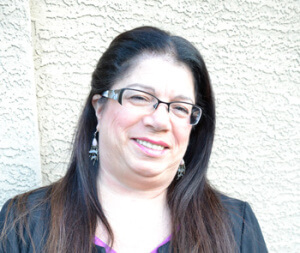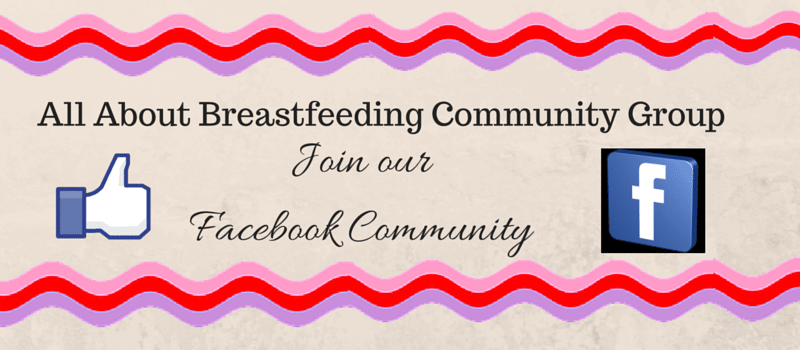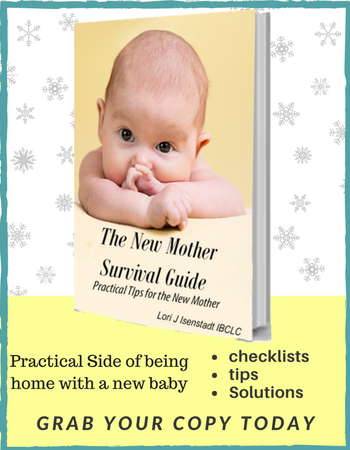Debra Brender
What I wanted to just make sure people understand is it doesn’t help to have a tightly swaddled, pacifier in mouth, calm baby, the first 3 days, when you’re trying to build your milk supply, I want to see an unswaddled baby, on your chest, nursing frequently, awake and happily sucking. That is the reality if you want to build a good supply. When you are a mother separated from her baby, you are going to need extra TLC and inspiration. Hopefully they will have a camera like we have in our NICU so you can see your baby from your hospital bed and that will give you motivation.
Her bio:
Debra has an extensive background in the health sciences. In 1985 she obtained a B.S. in Nutritional Sciences from Cornell University and became a Registered Nurse in Israel in 1988. Debra is a graduate of the UC San Diego Lactation Consultant program and works as an IBCLC at Good Samaritan Hospital in San Jose and runs her own private consultant practice in the Silicon Valley area. The name of her business is Los Gatos Lactation.
Her background:
Debra was brought up on Long Island, NY in the 1960s. In the 1990s, she moved out to California with her husband, who is from Israel. Her father is deceased and her younger sister and mom live in NY.
Flown and grown: Debra has 2 sons. One is in medical school in Oregon and her younger son is working in San Diego. As an IBCLC, she has a private practice called: Los Gatos Lactation, where hse provides breastfeeding classes and offers private lactation consultations is going strong. Last January she started working as an IBCLC at Good Samaritan Hospital in San Jose, California. They have a level 3 NICU and on any given day she can be seen floating from the NICU to antepartum, mother/baby and labor and delivery unit helping moms breastfeed.
Her breastfeeding history:
For more details, check out Episode # 309 where Debra details her breastfeeding history with her 2 sons.
How many moms does she see every month:
Debra can easily see 25 moms each shift, times 3 days a week = 75 moms a week = 300 moms a month = 3500 moms per year and that does not even count the moms she sees in her private practice. She realizes that with her work in the hospital, she has been exposed to so many different breastfeeding challenges and circumstances. She realizes that this truly has expanded her knowledge base so much. She would love to work in an OB office so she can visit with moms during their pregnancy and talk about breastfeeding.
Hospital vs. Home Breastfeeding Consults:
Hospital: Feel really good knowing that if she can get mom and baby off to a good breastfeeding start before discharge, this is great.
Home: There seems to be a level of desperation as perhaps there is not enough weight gain for baby or mom is struggling with her supply. She feels good about staying connected to her clients and helping them over the next few weeks.
Being able to make a difference and have a well fed baby – this is what makes Debra feel good about the work she does with moms she meets.
Her Golden Rule – There are 3 of them!
Feed your baby. Keep up your milk supply. Enjoy your baby.
As IBCLC’s we frequently have the same saying as far as the golden rule for breastfeeding moms: Feed your baby and protect you milk supply. Adding, enjoying your baby is a great third rule to add to this. Debra and I talk about how sometimes breastfeeding is so challenging and it is affecting a mothers emotional health. Moms mental health must take precedence over her desire to breastfeed.
We chat about how we approach moms in the early days of breastfeeding. Some want to combine breastfeeding and supplementing from the very beginning. It is helpful to explain to parents how breastfeeding and milk supply works – how the breasts make milk and how babies learn how to breastfeed… by breastfeeding. Than parents an decide how they want to approach breastfeeding once they have all the information.
Let’s talk about babies who are born premature and are unable to breastfeeding for several weeks or several months:
Micro-preemies:
Sometimes she does get to see and work with these moms, however, most of the time, they or their baby are having major medical issues and she is not able to provide breastfeeding education at this time.
Preterm – 30-31 weeks. She tries to see the mom on the antepartum unit before they have had their baby. She can teach them what they need to know about expressing colostrum. She talks to them about pumping and hand expression. Debra talks about how important it is to use your hands to help get the milk out and this is better than using the pump. She feels everyone needs to learn about hand expression. I fully agree with this. Moms who are hand expressing and getting milk, are motivated to keep going. More hand expression equals more milk.
Skin to Skin: sometimes this is all they can do for babies who are having breathing issues or having medical issues that they are unable to breastfeed yet. She finds that every RN in the NICU understands the importance of skin to skin. On the mom/baby unit, not enough moms are doing skin to skin with their baby – perhaps just the first hour, but than not so much after that. Holding babies skin to skin can help motivate moms to begin hand expression.
Debra’s thoughts about when she first walked into the NICU for the first time:
I held my breathe and I said: there is no way I could every imagine working here. The tubes and the wires and I couldn’t believe that these people are responsible for keeping these itty bitty babies alive. Now, I am much more comfortable going into the NICU. I sometimes go in there just to say hi to the staff.
Postpartum Doula:
Debra suggests it would be great if all new moms could hire a postpartum doula to help with sleep deprivation and the feelings of being overwhelmed with a newborn. NICU babies are often multiples… 2 and 3 and 4 babies. So, when parents are anxious to get their babies home because they think it will be easier, we know this transition is going to be very difficult.
Moms are at different stages and the transitions are different from one another so there is not one standard discharge care plan:
Some times one baby goes home and the other baby stays. Moms are back and forth between baby in hospital and baby at home. She is trying to keep up a pumping and/or breastfeeding routine. She will have a different discharge plan than the mom who is bringing home triplets who are still primarily fed from the bottle and working towards a breastfeeding or two per day.
What happens with parents when they are separated from their babies:
Debra let’s parents do the talking because this is not an easy scenario and this conversation is not easy and certainly not the same for every parent. Sometimes the parents don’t want to talk to Debra if they have stopped breastfeeding or weaning from breastfeeding or pumping.
Part of our job is to help moms with whatever they need. This includes helping them safely weaning from producing milk so they prevent clogged ducts and mastitis.
Debra shares with us a common scenario she encounters with NICU mom that she worked with:
She looks at what they are wearing, she begins a conversation that has to do with her having easy access to the breast. This will include considering a hands free bra to make regular pumping more convenient. She explains to parents the importance of early and regular milk removal. Debra suggests checking out – Firstdroplets.com – There is a lot of information on this website about the importance of hand expression and about getting started removing the milk. Starting early on, the first 3 days are very important. Family members are often well meaning, however may not understand the importance of regular and frequent milk removal.
She works with a lot of moms who have babies not latching on to the bare breast so they are using a nipple shield. Pretty soon, they transition from the nipple shield to the bare breast. Some babies who are born early are diagnosed with with low tone and getting occupational therapy will be an important part of the stepping stones to the baby actively breastfeeding. Debra can teach moms what she knows at Tummy Time, however, she acknowledges she does not have the skills to work with babies who are low tone.
Getting some decent naps in each day, eating well and taking care of themselves are very important to moms.
She suggested that if moms can afford to do so, that they hire a postpartum doula to help out in the early weeks.
Debbie shares some Pearls of Wisdom:
Babies were born to be breastfed! No matter when they’re born. When you see them latch so early, flange their lips and latch onto the breast, even when they should have been in the wombs for many more weeks. It is beautiful to see.
It takes a village! She share the “gorilla story.”
Your Online Breastfeeding Class
Learn how to breastfeed – Be comfortable. Be confident.
The learning continues well beyond the average breastfeeding basics class that is 60-90 minutes. In this class, we have over 15 hours of audio lessons, combined with many hours of videos to help support what you are learning. We cover breastfeeding and medication safety, what to do if your baby does not latch on, common breastfeeding challenges, tongue tie, premature babies, building a good supply, returning to work and pumping. Take a look at the list below and follow the link to the class page so you can see more specifics of what is covered. I want to ensure that we got you covered and that you have great support well beyond the newborn days.
- Using your pregnancy time to prepare for breastfeeding
- Tips on how to prepare your home for a newborn
- Specific details about the first 24 hours after birth.
- Exactly what to expect the first two weeks after birth
- What can you do if your baby is not latching on
- Common and not so common breastfeeding challenges
- What you can expect over the next few months
- Returning to work as a breastfeeding/pumping mom
- Pumping and storing your milk
- When to begin pumping and building your freezer stash
- How to make a smooth transition to postpartum life
- Lessons dedicated to partners and breastfeeding knowledge.
- Breastfeeding and the 1 year old
- Breastfeeding the toddler and beyond
- Tandem nursing
- Breastfeeding through a pregnancy
- Medication and mother’s milk
- Weaning
Once you register for the class, you have immediate access to:
- Audio Lessons
- Videos
- Educational handouts
- Helpful checklists
- Our “members only” group
- Weekly group LIVE Q&A sessions
Gain confidence in breastfeeding.
Expert advice from Lori J. Isenstadt, IBCLC who has over 25 years of experience in maternal health and lactation. I will help you navigate the ins and outs of breastfeeding.
Listen anywhere and anytime. Imagine not having to sit in a classroom or stare at a screen. You can learn all about breastfeeding while going for a walk, driving to work or running errands, traveling on a plane, train or bus. Because you can download the audios, learning is easy and convenient. Get ready to learn anytime whenever it’s convenient for you and your partner. You can be cooking dinner together and listening to the class. Perhaps relaxing together in the evening in your comfy clothes. You can learn together. Easy access to all class materials. Your class never expires. You’ll be able to listen and download the materials at your convenience.
You are not alone!
Once you are a student in the breastfeeding class, you have regular access to ongoing support for the whole time you are breastfeeding. You can have your questions answered by Lori J. Isenstadt, IBCLC, in our private group as well as our weekly live Q & A sessions. Just check out the Bonuses below to see how I provide you with ongoing support..
Exclusive Bonus #1
Immediate access to a private group for class students only. I will be answering your questions 5 days a week.
Exclusive Bonus #2
Invitation to join our weekly Q & A session with Lori and other students.
Exclusive Bonus #3
Need additional help? *25% discount off a private consult – for students only.
*If you are in the Phoenix metro area. use this link to schedule your Office or Home lactation consult.
*If you are out of the area, use this link to schedule a Skype call
Do you have a question about the class before you purchase? Send it to – aabreastfeeding@hotmail.com
 Register for the Breastfeeding class
Register for the Breastfeeding class
http://www.aabreastfeeding.com/audioclass
Additional ways to connect with me:
Like us on Facebook HERE:
http://bit.ly/2dNPlsC
Follow us on Twitter HERE:
@breastfeedingaz
http://bit.ly/2BfEIJ2
Follow us on Pinterest HERE:
https://www.pinterest.com/lorijisenstadt
Subscribe on iTunes the All About Breastfeeding show HERE:
https://apple.co/2FJGwsV

 Lori Jill Isenstadt, IBCLC is a huge breastfeeding supporter. She has spent much of her adult life working in the maternal health field. Once she became turned on to birth and became a childbirth educator, there was no stopping her love of working with families during their childbearing years. Lori became a Birth doula and a Postpartum doula and soon became a lactation consultant. She has been helping moms and babies with breastfeeding for over 25 years. Lori founded her private practice, All About Breastfeeding where she meets with moms one on one to help solve their breastfeeding challenges. She is an international speaker, book author and the host of the popular itunes podcast, All About Breastfeeding, the place where the girls hang out. You can reach Lori by email at: aabreastfeeding@hotmail.com or contact her via her website: allaboutbreastfeeding.biz/contact
Lori Jill Isenstadt, IBCLC is a huge breastfeeding supporter. She has spent much of her adult life working in the maternal health field. Once she became turned on to birth and became a childbirth educator, there was no stopping her love of working with families during their childbearing years. Lori became a Birth doula and a Postpartum doula and soon became a lactation consultant. She has been helping moms and babies with breastfeeding for over 25 years. Lori founded her private practice, All About Breastfeeding where she meets with moms one on one to help solve their breastfeeding challenges. She is an international speaker, book author and the host of the popular itunes podcast, All About Breastfeeding, the place where the girls hang out. You can reach Lori by email at: aabreastfeeding@hotmail.com or contact her via her website: allaboutbreastfeeding.biz/contactyour email address will not be published







